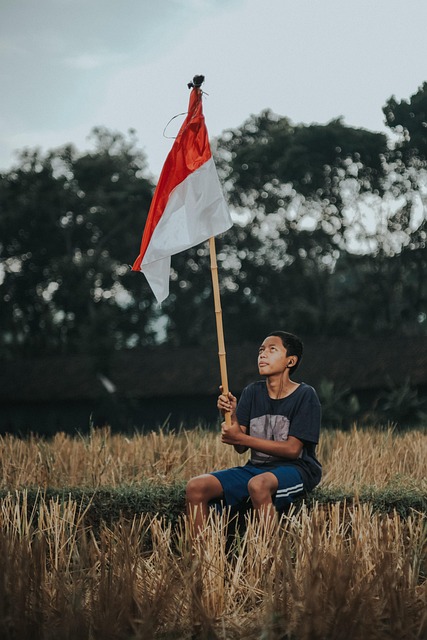Navigating Miranda Rights: Ethical Expert Witnesses in Criminal Proceedings

Healthcare compliance experts are vital navigators in a complex legal landscape, ensuring medical in…….
Welcome to an in-depth exploration of a fundamental aspect of criminal justice: the Miranda Rights. This article aims to guide readers through the intricate web of rights, their historical roots, and their profound impact on modern-day criminal proceedings globally. The Miranda Rights, a cornerstone of legal protection, have evolved over time, adapting to societal changes and technological advancements. By delving into its various facets, we will uncover how this seemingly simple right has become a complex and dynamic element in the pursuit of justice.
Definition: The Miranda Rights, formally known as the Miranda Warning, is a legal concept that guarantees individuals their constitutional rights during police custody or interrogation. It ensures that suspects are made aware of their rights to remain silent, consult with an attorney, and have an attorney present during questioning.
Historical Context: The origins of Miranda Rights can be traced back to the 1966 U.S. Supreme Court case Miranda v. Arizona. In this landmark decision, the Court ruled that police must inform suspects of their rights under the Fifth and Sixth Amendments to the U.S. Constitution before questioning them. This ruling addressed the concern that individuals in custody might make statements incriminating themselves without fully understanding their legal options.
Core Components: The Miranda Warning typically includes the following essential elements:
Significance: The Miranda Rights are pivotal in ensuring fair treatment and due process for individuals involved in criminal investigations. It prevents law enforcement from using coercion or trickery to extract confessions, thereby safeguarding against false accusations. Moreover, it facilitates a more transparent and just legal system by informing suspects of their entitlements.
The Miranda Rights have resonated far beyond U.S. borders, influencing legal frameworks worldwide. Many countries have adopted similar concepts in their criminal justice systems, albeit with regional variations.
International Influence:
Trends Shaping its Trajectory:
The concept of justice is not solely a legal or moral issue; it also has significant economic implications. Miranda Rights play a pivotal role in shaping economic systems and markets related to law enforcement and criminal justice.
Market Dynamics:
Investment Patterns:
Technology has been a game-changer in various sectors, and criminal justice is no exception. The application of technological advancements alongside the Miranda Rights has led to both improvements and challenges.
Significance of Tech:
Future Potential:
The development and enforcement of Miranda Rights are guided by various policies, regulations, and legislative frameworks that differ across jurisdictions.
Key Policies and Frameworks:
Influence on Development:
Despite its broad acceptance and benefits, the Miranda Rights system faces several challenges and criticisms that demand attention and innovative solutions.
Main Challenges:
Proposed Solutions:
The practical application of Miranda Rights in various scenarios offers valuable insights into their effectiveness and potential pitfalls.
Case Study 1: The Impact of Language Barriers
In a cross-border investigation involving a non-native English speaker, law enforcement struggled to deliver the Miranda Warning accurately due to language differences. This led to a miscommunication of rights, causing a delay in the interrogation process. The case highlighted the importance of providing translated warnings and ensuring comprehension for non-English speakers.
Case Study 2: Utilizing Technology for Compliance
A U.S. police department implemented an automated system to deliver Miranda Warnings during digital interrogations. This technology ensured consistency and minimized officer subjectivity, enhancing accountability. However, the system required regular updates to address software glitches that could compromise rights.
Lessons Learned:
The landscape of Miranda Rights is ever-evolving, with emerging trends shaping its future trajectory.
Potential Growth Areas:
Emerging Trends:
Strategic Considerations:
The Miranda Rights have evolved from a simple warning to a complex and dynamic legal concept that plays a pivotal role in modern-day criminal proceedings. Its global reach and influence reflect the universal desire for justice and fair treatment. As technology advances and societal norms shift, the continuous evaluation and refinement of Miranda Rights are essential to maintain their integrity and effectiveness.
By addressing challenges, leveraging technological advancements, and fostering international cooperation, we can ensure that the Miranda Rights remain a cornerstone of criminal justice, safeguarding the rights of individuals while facilitating efficient law enforcement practices.
Q: What happens if an officer fails to read the Miranda Warning?
A: If an officer fails to administer the Miranda Warning, any statements made by the suspect during interrogation might be considered inadmissible in court. This is known as a “Mirandization” issue, and it can lead to the exclusion of evidence, potentially impacting the outcome of a case.
Q: Can a person refuse to answer questions even after waiving their rights?
A: Yes, individuals always retain the right to remain silent. They can choose to invoke this right at any time during questioning, even after initially waiving their rights. This is a key protection against self-incrimination.
Q: Are there any circumstances where Miranda Rights don’t apply?
A: Miranda Rights typically apply during custodial interrogations. However, in some jurisdictions, they may not be required for informal discussions or voluntary statements made outside of police custody. Also, in emergency situations, law enforcement may temporarily suspend certain rights to address imminent threats.
Q: How can technology enhance the delivery of Miranda Warnings?
A: Technology, such as automated systems or video conferencing platforms, can streamline the process by ensuring accurate and consistent warnings. Real-time translation tools can also eliminate language barriers, making the warning accessible to all.
Q: What is the role of legal aid in Miranda Rights?
A: Legal aid ensures that individuals from low-income backgrounds can access legal representation during custodial interrogations. This right is crucial for maintaining fairness and ensuring that suspects understand their options fully.

Healthcare compliance experts are vital navigators in a complex legal landscape, ensuring medical in…….

Securities class actions involve complex legal challenges where investors collectively sue for secur…….

Antitrust laws protect fair competition by banning agreements restricting trade and innovation, cruc…….

Fraudulent financial practices, from white-collar crimes to misrepresentations, demand strategic app…….

Antitrust laws, similar to Miranda Rights in criminal cases, protect fair competition by preventing…….

Understanding consumer protection laws and rights, like Miranda Rights in criminal proceedings, is e…….

Mastering Miranda Rights in criminal law is vital for fair trials, protecting defendants from self-i…….

RF Regulatory Agency (RFRA) investigations ensure compliance with RF standards, involving documentat…….

Antitrust laws ensure fair competition and consumer protection by preventing businesses from adoptin…….